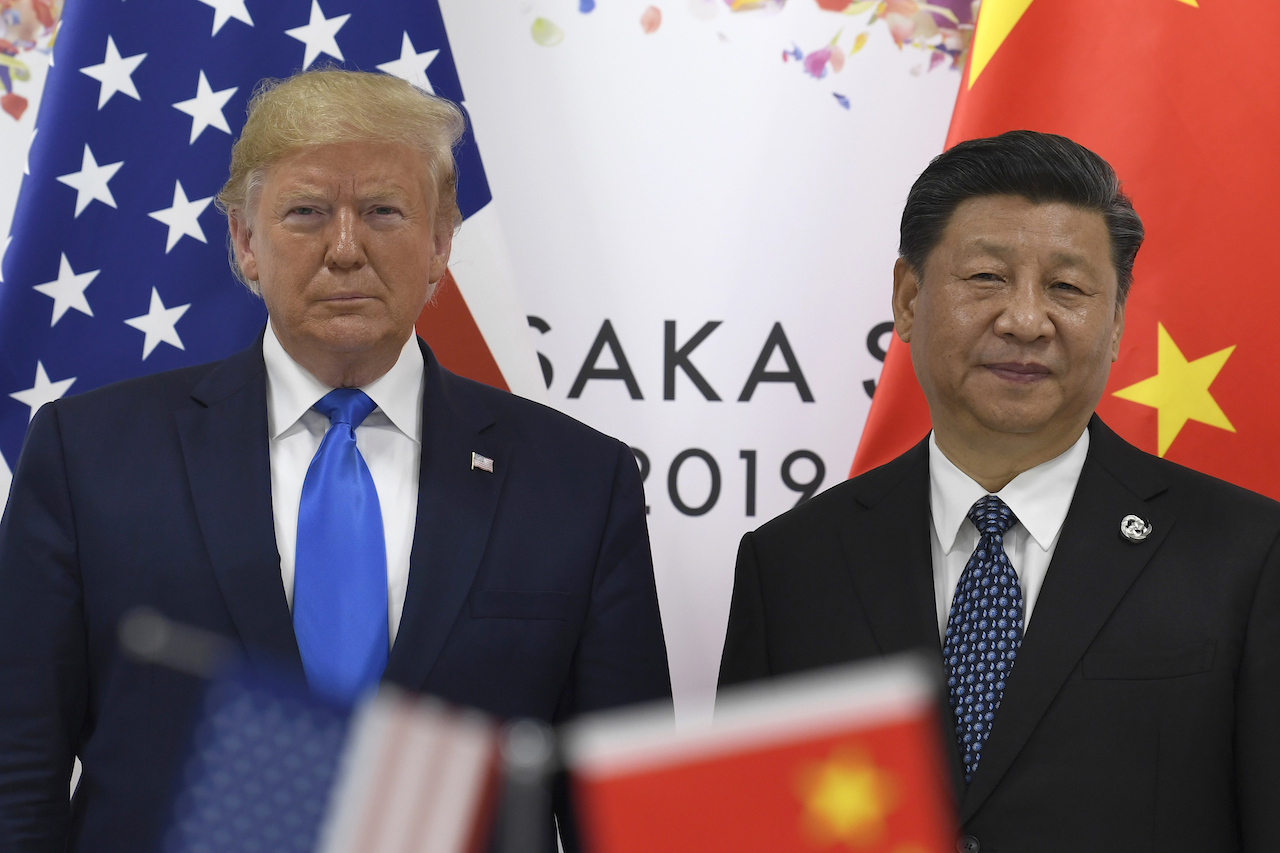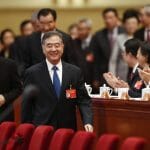Whatever we might say about the Trump camp, they are stiffening American spines when it comes to doing the right thing by democratic Taiwan.
A handful of U.S. officials in the past 24 hours did what many heads of state and ministries worldwide have failed to do in recent years — they reclaimed their country’s sovereign right to decide who to allow into their territory and who to engage with, thus ignoring the warnings of retaliation by Beijing that, far too often, have succeeded in isolating individuals whom China regards as its enemies.
Taiwanese President Tsai Ing-wen, on her way to Central America, where she will visit Honduras, Nicaragua, Guatemala and El Salvador this week, made a stopover in Houston at the weekend, despite a request by Beijing that she not be allowed in the U.S. During her two-day stay in Texas, Tsai met members of the Taiwanese-American community as well as top Republican officials, including Texas Governor Greg Abbott and Senator Ted Cruz. She also had a telephone conversation with U.S. senator John McCain, head of the Senate Committee on Armed Services.
As expected, Beijing and its official propaganda outlets spewed vitriol at news of Tsai’s engaging with representatives from the Republican party weeks before a republican president enters the White House. Meanwhile, Cruz revealed that Chinese officials from the People’s Republic of China Consulate, as is the wont of Chinese diplomatic bully missions worldwide, had warned him against meeting Tsai. Beijing also reportedly asked the U.S. to not have formal meetings with Tsai during the visit.
“We firmly oppose leaders of the Taiwan region [sic], on the so-called basis of a transit visit, having any form of contact with U.S. officials and engaging in activities that interfere with and damage China-U.S. relations,” Lu Kang, the foreign ministry spokesman, said on Monday.
Cruz’s response to China was exactly what Beijing needs to hear more often, and not just from the U.S: “The People’s Republic of China needs to understand that in America we make decisions about meeting with visitors for ourselves … This is not about the PRC. This is about the U.S. relationship with Taiwan, an ally we are legally bound to defend.”
“The People’s Republic of China needs to understand that in America we make decisions about meeting with visitors for ourselves … This is not about the PRC. This is about the U.S. relationship with Taiwan, an ally we are legally bound to defend.”
No foreign state, and certainly not China, should have the right to decide who — from the Dalai Lama to Hong Kong activists, Uighur leaders to Taiwanese officials — enters a state’s territory and meets with. It is a state’s sovereign right to do so, a right that, for the sake of good relations with Beijing, many a government has abdicated over the years, fearing consequences whose actual sting was never tested. In Taiwan’s case, the inability of its officials to visit countries or meet with their counterparts is particularly unnerving, given the democratic nature of its government and the nation’s commitment to being a responsible member of the community of nations.

It is very telling that in warning the U.S. against allowing President Tsai into the country or engaging her in official talks, Beijing stated the “one China” policy. It is telling because in previous years, president Ma Ying-jeou of the Kuomintang (KMT) also engaged U.S. lawmakers during his (problem free) stopovers in the country, without China raising a stink. Thus it appears that the so-called “one China” policy isn’t as rigid as Beijing would let us think; in fact, the “policy” seems to harden whenever an official it doesn’t like is elected by Taiwan’s 23 million people. Unwittingly, Beijing has shown us that it, too, can be flexible and that the so-called rules are not set in stone.
Since the controversial Donald Trump’s election in November, its has been a bit of a national, if not global, sport to slam him and his close aides for their supposedly erratic and misguided behavior, including the president-elect’s groundbreaking telephone conversation with President Tsai on Dec. 2. While Mr. Trump and his associates are fair game for criticism on a number of issues, we should not categorically reject everything they do or say as invariably insane or detrimental to U.S. interests. In fact, when it comes to Taiwan and the U.S.’ right to decide how it will engage its longstanding democratic ally in Asia, the Trump camp has busted the myth that Taiwan was, is, and ought to be an orphan until the end of time. For decades, Taiwan, a successful, peaceful democracy and one of the world’s 20 largest economies, has been treated little better than a rogue state by the international community, while concession after concession has been made to authoritarian China, which has returned the favor by tightening its grip on Chinese society and becoming increasingly belligerent within its sphere of influence.
Mr. Trump doesn’t even have to destroy the “one China” policy, as he has suggested he might do, to rectify some of the wrongs in how the world engages with Taiwan and its people. All he needs to do is to remind Beijing that what is permissible within the U.S.’ “one China” policy is for the U.S. — not China — to decide. There is nothing in the formulation of that (often misunderstood) policy that states that U.S. officials are not allowed to have direct contact with their Taiwanese counterparts, let alone that elected Taiwanese officials are barred from entering the U.S. China’s warnings in recent days were a concrete example of Beijing and its propaganda apparatus using and abusing the “one China” principle to meet China’s immediate needs. And it was a concrete, refreshing example of officials in a democracy doing the right thing by refusing to be intimidated by China and its creeping extraterritoriality.
In the end, we must really ask ourselves what China can do should it decide to retaliate, knowing that it needs the U.S. just as much, if not more, than the U.S. needs China. Given that the Chinese leadership isn’t completely irrational and suicidal, the list of retaliatory options is rather short, and nothing on it isn’t survivable by the U.S. Therefore, although Beijing may take some punitive action, whatever that is isn’t likely to be major or of long duration. And should Beijing decide to punish Taiwan rather than the U.S., whatever it does can be compensated for by deepening the ties with like-minded allies.
This should serve as an example and source of inspiration for other states that have allowed themselves to be intimated by China and that let Beijing determine what their “one China” policy is all about (educating officials on what that policy means would be a good place to start). It’s grand time the international community did the right thing by Taiwan and its extraordinary people; the ball will only get rolling if other countries stiffen their spines and do what their intellect tells them is the right thing to do. If it takes Trump the Disruptor to start that process, then so be it. T need not always equal T minus one, especially if T was wrong all along.
You might also like
More from China
A Few Thoughts on the Meng-Spavor-Kovrig Exchange
It is hard not to see this weekend’s developments as a victory for China and the creation of a world …
In Memoriam: Lee Teng-Hui and the Democracy That He Built
The former president of Taiwan is the incontestable refutation of the belief that history is merely an impersonal force, that …
The Making of ‘Insidious Power: How China Undermines Global Democracy’
A new book released on July 30 takes a close look at the agencies and mechanisms of CCP 'sharp power' …









